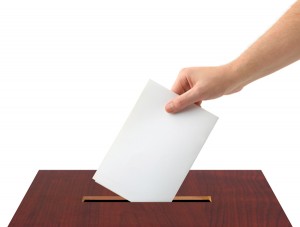By Steve Brawner,  © 2019 by Steve Brawner Communications, Inc.
© 2019 by Steve Brawner Communications, Inc.
Legislators this year permanently moved Arkansas’ presidential primary elections to March, and recently the state starting seeing the maybe-or-not-worth-it results: visits by two mid-tier Democratic presidential candidates.
Minnesota Sen. Amy Klobuchar and former Texas Rep. Beto O’Rourke both talked guns.
In a press conference Aug. 15, Klobuchar touted universal background checks and barring guns from people convicted of domestic abuse against unmarried partners. As the Arkansas Democrat-Gazette’s John Moritz reported, she also expressed support for “red flag” laws creating a process for temporarily removing guns from people deemed a threat.
O’Rourke narrowly lost a high-profile Senate race in Texas last year. He entered this campaign with much promise but has yet to catch fire, so he’s trying to create a spark.
He spoke Aug. 17 at the state Democratic Party’s Clinton Dinner, spoke at a gun control rally at the state Capitol, and visited a gun show in Conway. O’Rourke has called for banning military-style assault rifles and instituting a mandatory government buyback program where owners of those weapons who don’t participate would be fined.
O’Rourke formerly represented El Paso, where a mass shooter killed 22 people Aug. 3.
O’Rourke and Klobuchar are in the middle of a crowded but soon-to-thin Democratic presidential field. They are among 10 candidates who so far have qualified for the next debate, or debates, in September. But they are lagging the five who have separated themselves from the pack: former Vice President Joe Biden; Sens. Bernie Sanders, Elizabeth Warren and Kamala Harris; and South Bend, Indiana Mayor Pete Buttigieg.
It’s sort of a survive-and-advance game right now. Klobuchar may not last much longer. We’ll see if O’Rourke flames out or enters that first tier by the time people start voting. Iowa is Feb. 3, followed by New Hampshire on Feb. 11, Nevada on Feb. 22, and South Carolina on Feb. 29.
Then on March 3, Democrats hold primaries in 14 states, including Arkansas along with Texas, O’Rourke’s home state; California, which is Harris’ home state; Warren’s Massachusetts; and Vermont, home of Sanders.
After that day, there will be one or two front runners and maybe a couple still trying to make their case. Remember four years ago, when Republicans started with a big field? By the time the voting started, the field had already narrowed, and soon it was President Trump and just a few others.
That year, Arkansas had moved its primaries to March 1 from the traditional May date, so voters participated earlier in the process as part of the so-called “SEC primary.” This year, Act 545 by Sen. Trent Garner, R-El Dorado, permanently moved the primaries to early March during presidential years, while keeping them in May otherwise.
The earlier date means Arkansans will participate meaningfully in the Democrats’ presidential nominating process – and the Republicans’, if President Trump is opposed. Sanders has already visited a Walmart gathering, and others will probably stop by.
That’s all good. And it was good for O’Rourke to stop by that gun show and converse with people who see things differently than he does. It’s better than tweeting at each other across the divide.
The downside is the election process moves up for everyone. For an election happening Nov. 3, 2020, the filing period begins Nov. 4, 2019, and ends a week later. This is late August, so if you’ve thought about running for office but haven’t really decided, you’re running out of time.
The campaign season will last a full year for candidates everywhere, no matter what office they seek. That’s a long time to ask for votes, raise money, and do what candidates do. And all this benefits incumbents, many of whom already know they want to stay in office and have raised money to do so.
Is having a bigger say in the presidential election worth those downsides? A case can be made either way.
The alternative is to split the two: vote for president in March; vote for everyone else in May or another time.
We did that in 2008. We had to pay for two elections, and voter turnout in May was 18%.
Steve Brawner is a syndicated columnist in Arkansas. Email him at brawnersteve@mac.com. Follow him on Twitter at @stevebrawner.